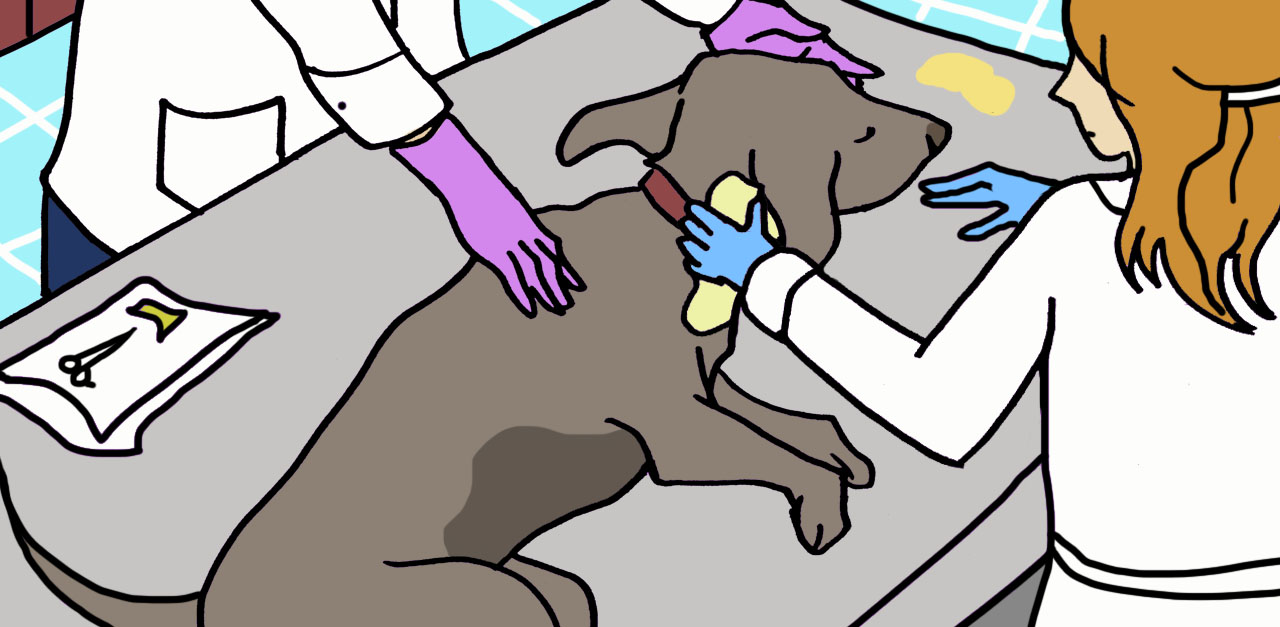
Earlier this year, my dog got really sick and started throwing up all over my apartment. It worried me, but she seemed completely fine a few hours later.
Anyone who has a dog knows that they get sick from time to time. It's never fun, but dogs can become ill just like humans.
Sometimes, they'll simply recover on their own. Other times, it's necessary for the dog to be seen by a vet.
Dogs are mischievous animals — they constantly get into things they shouldn't, like garbage, human snacks, and other household items. This often makes them sick, giving them diarrhea or making them throw up.
Knowing whether your dog is actually sick or just ate something bad is important, especially when it comes to vomiting.
Learn more about the causes of dog vomiting below!
Photos: US Air Force photo by Airman 1st Class Sandra Marrero>; Morgan Swofford for LittleThings
Regurgitating Vs. Vomiting
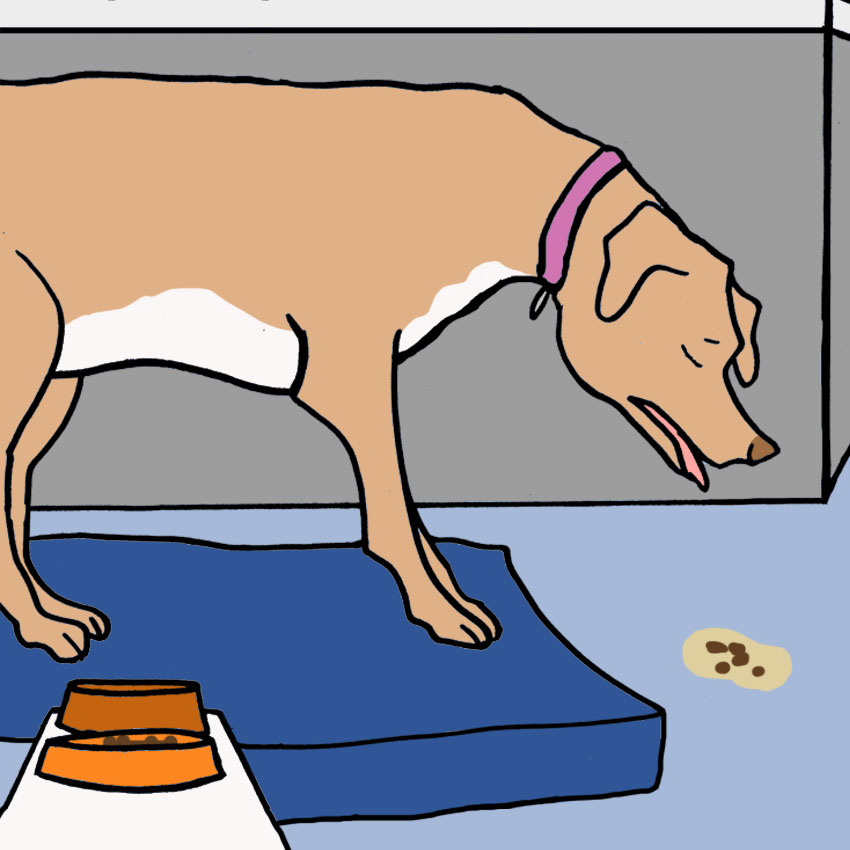
Before getting into the causes of dog vomiting, it's important to know that there's a difference between vomiting and regurgitating.
According to the American Kennel Club, "When dogs vomit, they are forcefully ejecting the contents of their stomach and upper small intestine, bringing food, fluid, and debris onto your carpet." Before vomiting, dogs may show other symptoms, like nausea and drooling.
Regurgitating occurs before digestion, which means the substances that are "thrown up" are undigested and might still be cylindrical (like the shape of the esophagus). Before regurgitating, a dog may start coughing or struggle to breathe.
Normal Dog Vomiting

Most of the time, dog vomiting shouldn't be a huge cause for concern.
The American Kennel Club explains that dogs often throw up because they ate too quickly, consumed some grass, or swallowed something that isn't sitting well.
Problematic Dog Vomiting
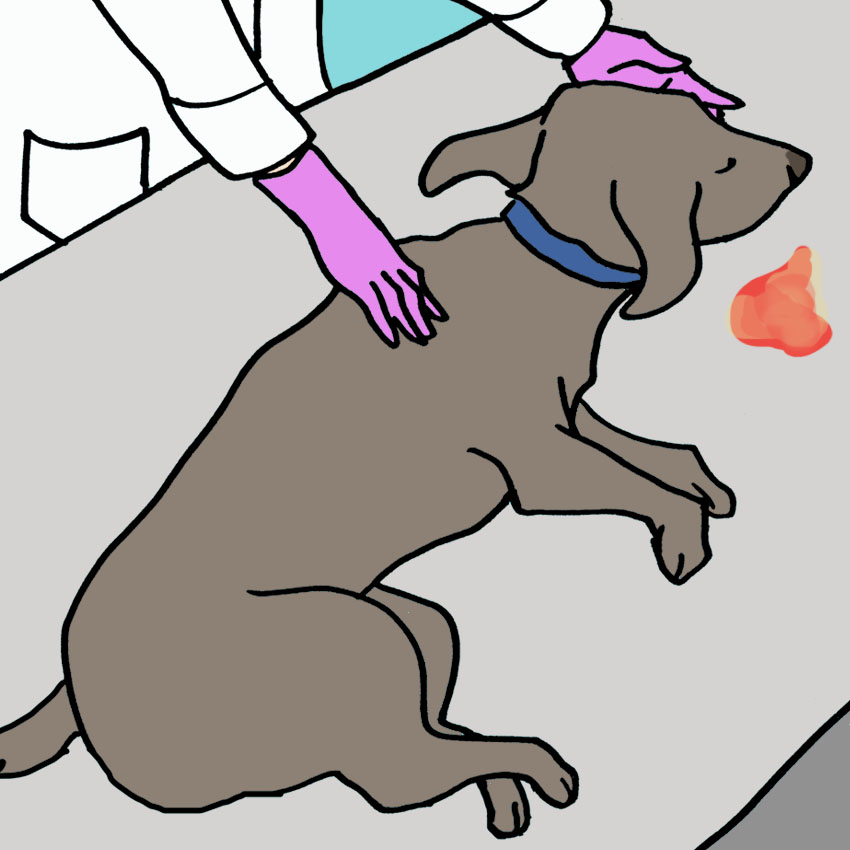
Obviously, if your dog is vomiting, it may be cause for concern.
You should always pay attention if your dog is sick, especially if they're vomiting and also display other symptoms.
The American Kennel Club says that if your dog has any of the following symptoms, it may be cause for concern: continuous or chronic vomiting, vomiting blood, dry heaving, vomiting a lot at once, bloody diarrhea, or seizures.
Causes Of Dog Vomiting #1: Ingestion Of Bad Substances
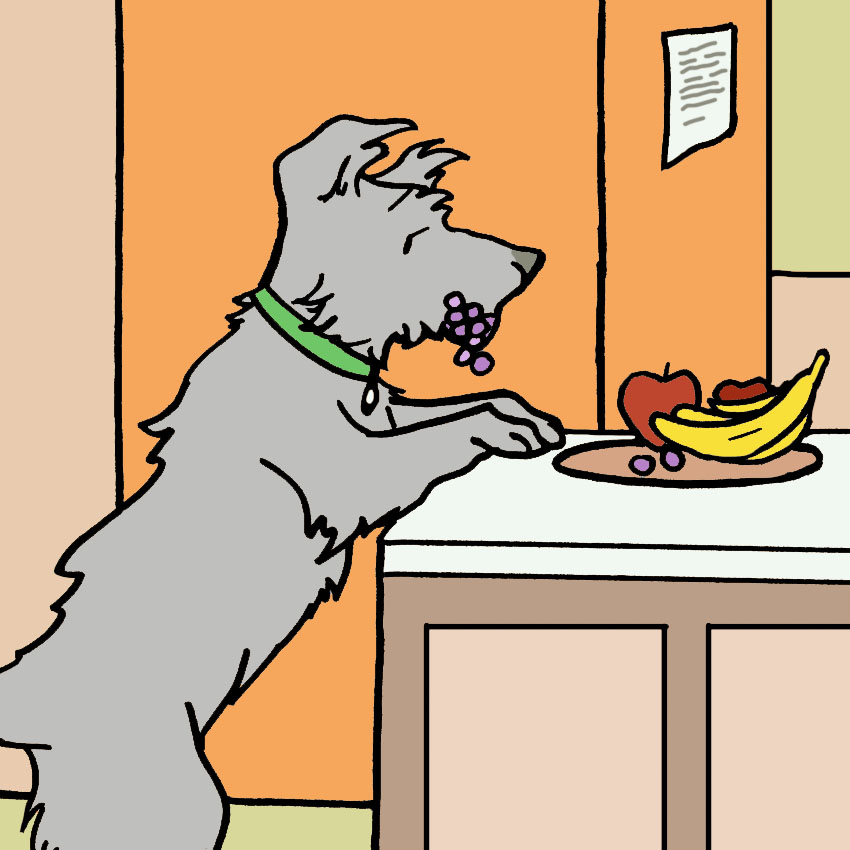
One of the main causes of dog vomiting is ingestion of bad substances.
PetMD explains that one of the reasons dogs vomit is "to expel something they shouldn't have eaten from their stomach."
Some of these substances include toxins, poisons, garbage, chocolate, and grapes.
#2: Organ Failure
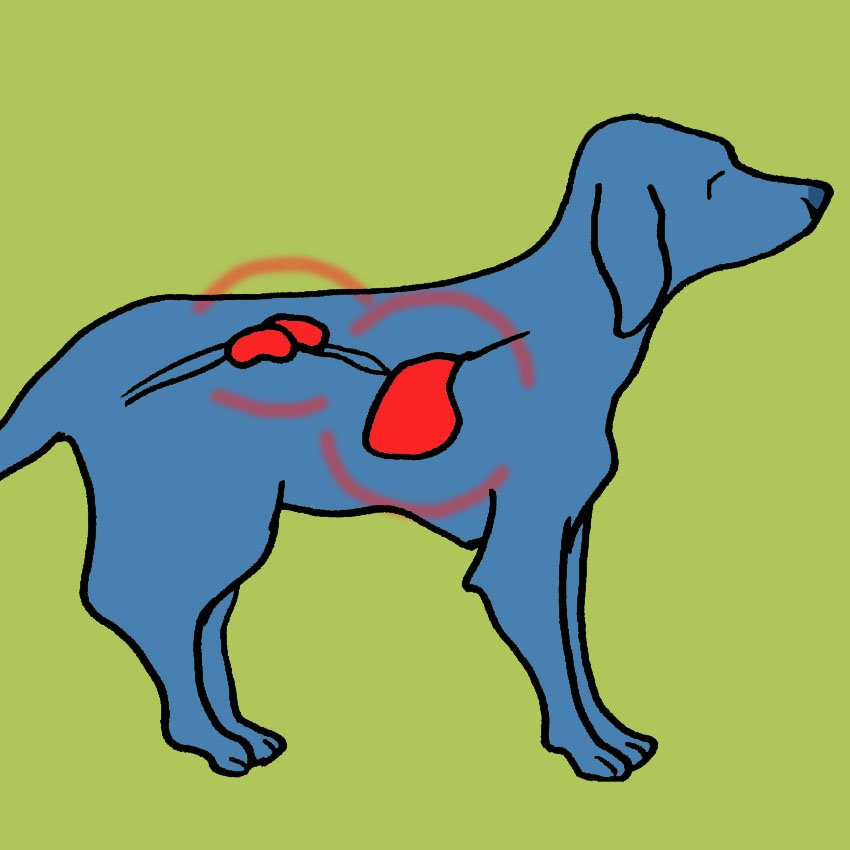
Unfortunately, vomiting can also be a sign of something more serious.
"Acute vomiting, which can be defined as sudden or severe bouts of vomiting, is a serious symptom of quite a few diseases, disorders, and complications," explains the American Kennel Club.
Kidney failure and liver failure can both make dogs vomit.
#3: Infection
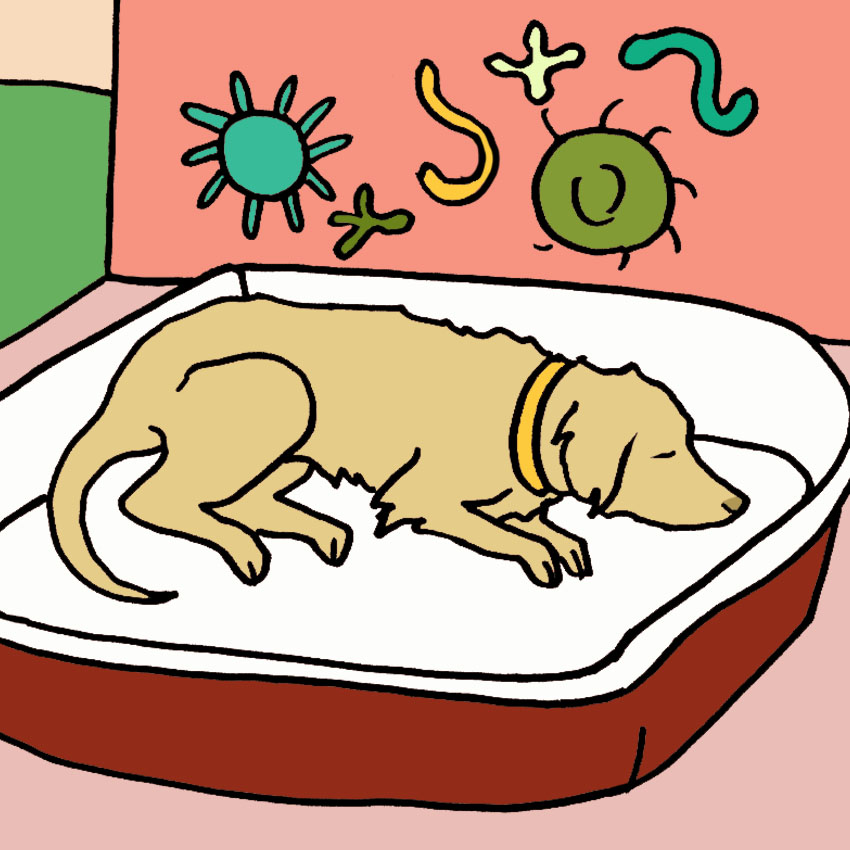
Certain infections may also cause vomiting in dogs.
According to PetMD, fungal, bacterial, and viral infections can all make dogs vomit.
Inflammation — like gastroenteritis (intestinal tract or stomach inflammation) or inflammatory bowel disease may also cause vomiting.
#4: Pancreatitis
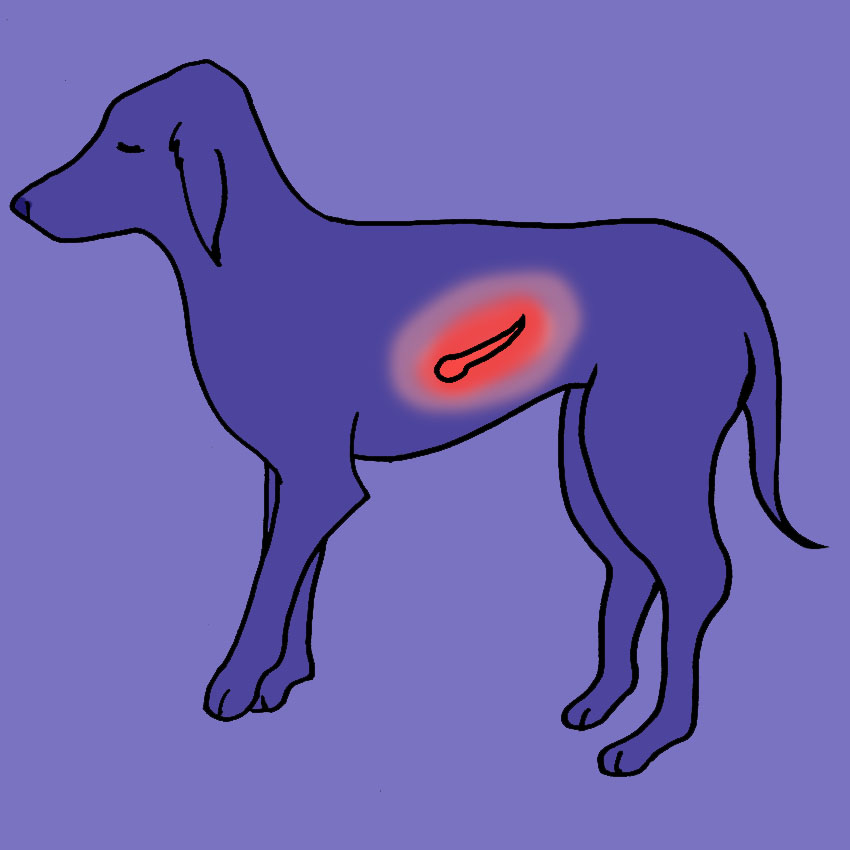
According to the VCA Animal Hospital, "When the pancreas becomes inflamed, the condition is called pancreatitis. Pancreatitis occurs commonly in the dog."
Some of the common symptoms of pancreatitis include abdominal pain, diarrhea, lethargy, decreased appetite, fever, nausea, and vomiting.
#5: Intestinal Parasites
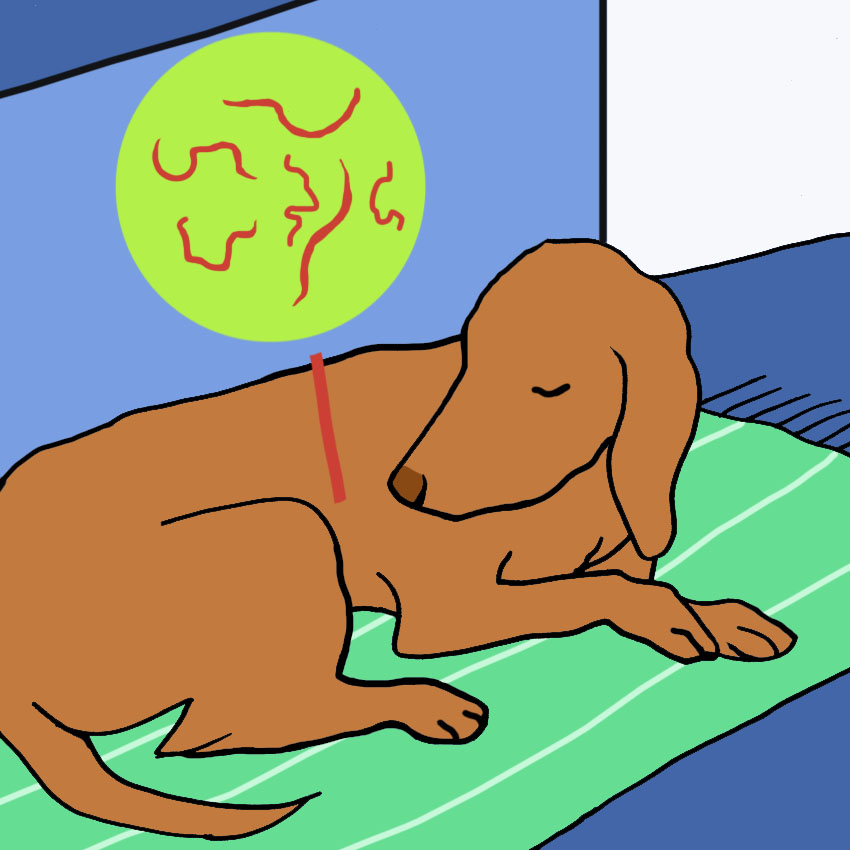
The Pet Health Network explains, "Intestinal parasites are parasites that live inside the host animal’s gastrointestinal tract." Some of these parasites include tapeworms, roundworms, whipworms, hookworms, giardia, and coccidia.
The symptoms of intestinal parasites include weight loss, vomiting, diarrhea, scooting, a distended abdomen, and occasional coughing.
Other Causes
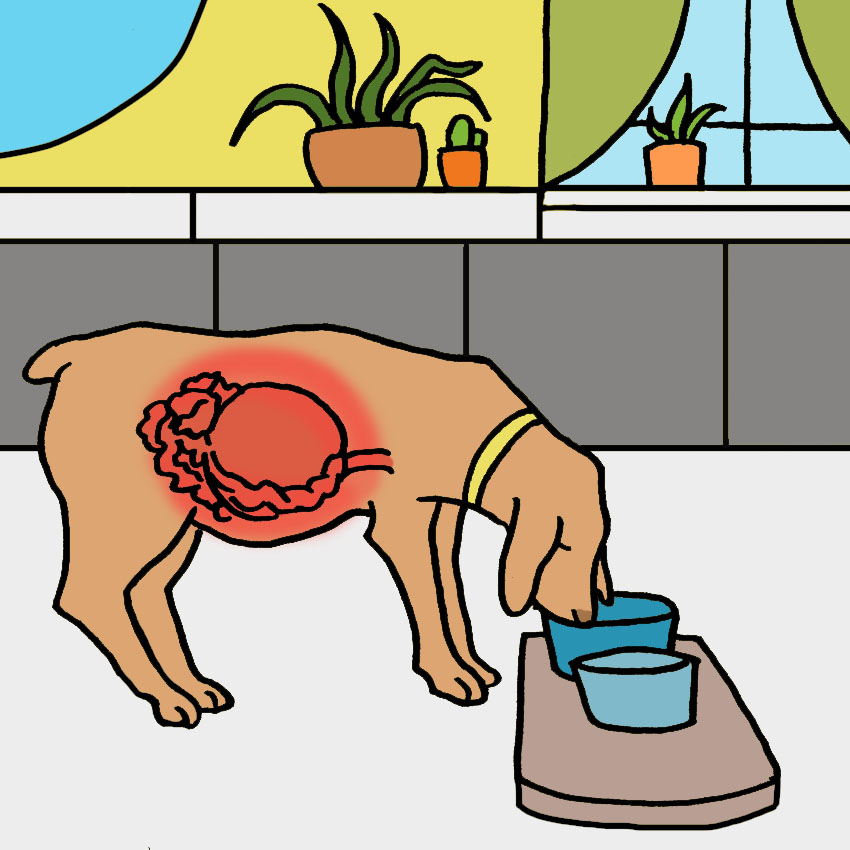
The American Kennel Club explains that there are a number of other potential causes of dog vomiting.
These include a change in diet, reaction to a medication, bloat, and heat stroke. PetMD says it could also be caused by some types of cancer, gastrointestinal ulcers, head trauma, or food allergies/intolerances.
When To See A Vet
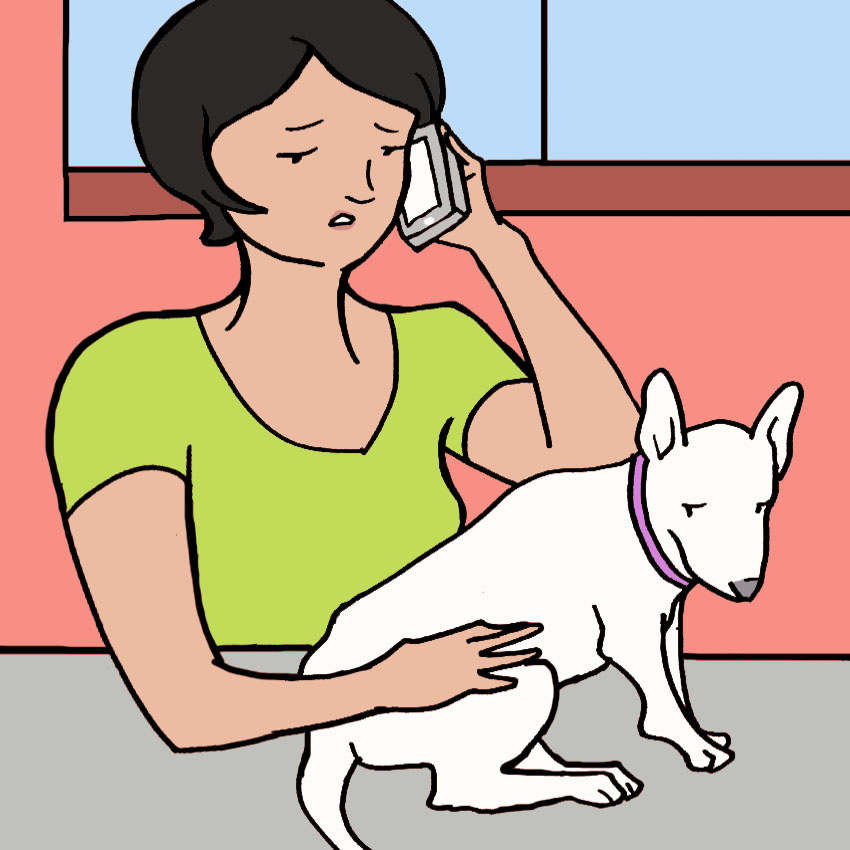
If your dog vomits more than once within a few hours, it's worth giving your vet a call to get their opinion.
You should seek immediate medical care for your dog if you notice any of the following symptoms along with vomiting: collapsing, racing heart, continuous dry heaving, or pale gums.
The Pet Health Network also says you should get to a vet ASAP if your dog ate something poisonous, their vomiting wakes them in the night and they can't settle down, they vomit more than six times in a day, they can't hold down water for 12 hours, or they display any unusual behavior.
Please SHARE this article with your friends if you think everyone should know about the causes of dog vomiting!




